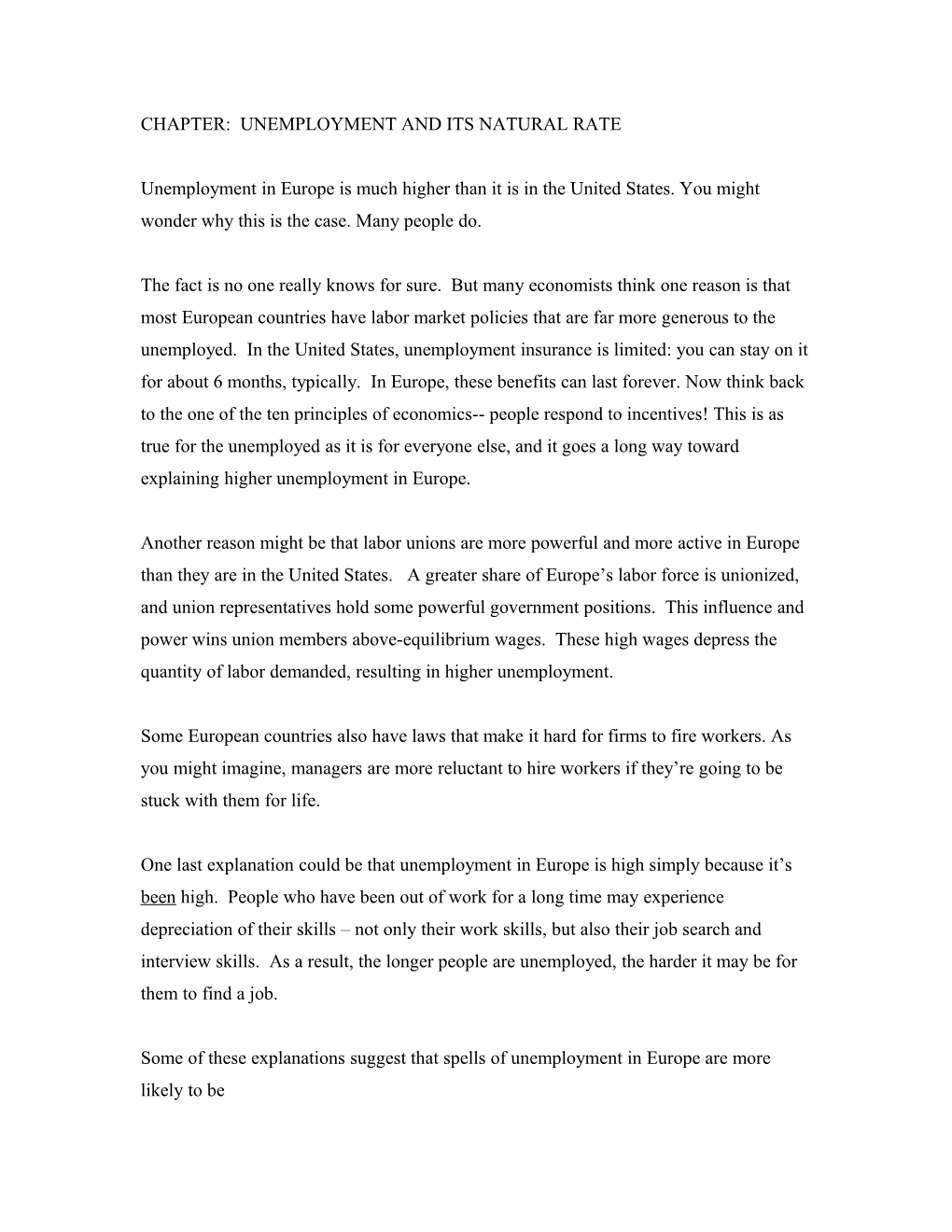CHAPTER: UNEMPLOYMENT AND ITS NATURAL RATE
Unemployment in Europe is much higher than it is in the United States. You might wonder why this is the case. Many people do.
The fact is no one really knows for sure. But many economists think one reason is that most European countries have labor market policies that are far more generous to the unemployed. In the United States, unemployment insurance is limited: you can stay on it for about 6 months, typically. In Europe, these benefits can last forever. Now think back to the one of the ten principles of economics-- people respond to incentives! This is as true for the unemployed as it is for everyone else, and it goes a long way toward explaining higher unemployment in Europe.
Another reason might be that labor unions are more powerful and more active in Europe than they are in the United States. A greater share of Europe’s labor force is unionized, and union representatives hold some powerful government positions. This influence and power wins union members above-equilibrium wages. These high wages depress the quantity of labor demanded, resulting in higher unemployment.
Some European countries also have laws that make it hard for firms to fire workers. As you might imagine, managers are more reluctant to hire workers if they’re going to be stuck with them for life.
One last explanation could be that unemployment in Europe is high simply because it’s been high. People who have been out of work for a long time may experience depreciation of their skills – not only their work skills, but also their job search and interview skills. As a result, the longer people are unemployed, the harder it may be for them to find a job.
Some of these explanations suggest that spells of unemployment in Europe are more likely to be
long-term. And this is exactly what we observe. A telling indicator is the percentage of the unemployed who have been without work for over a year. In the United States this indicator is under 10 percent. But it is about 30% in Great Britain, 40% in France, and 50% in Germany.
Whatever the reason, Europe’s high unemployment is a great concern. Some European countries have recently begun reforming laws and regulations to make their labor markets more flexible. But they still have a long way to go.
